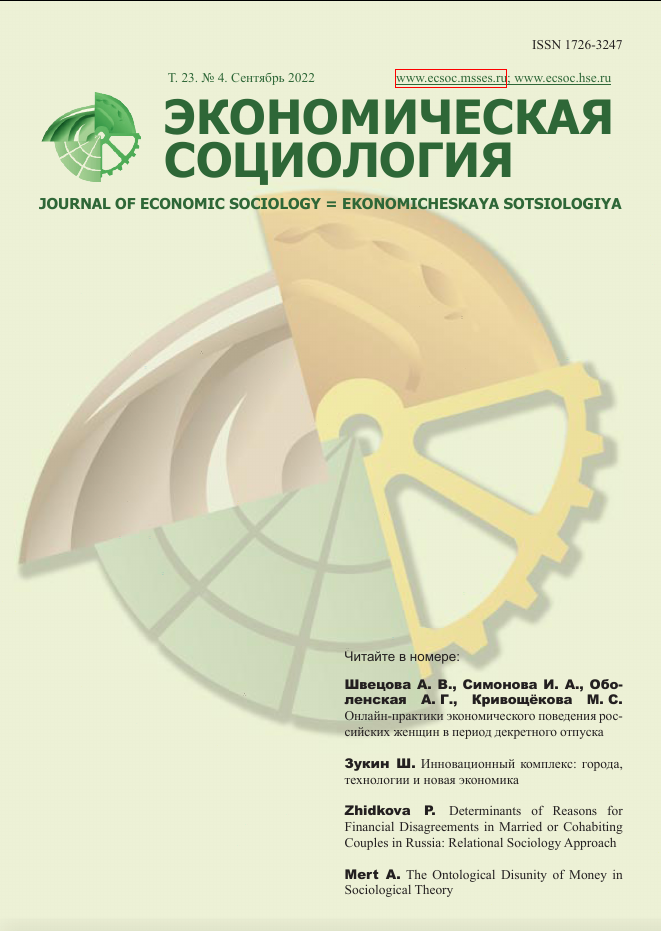Russian Instruments of Urban Planning from the Sociological Institutionalism Perspective
Abstract
In this paper, we study the role of urban development instruments in structuring the interactions among the key urban politics actors: citizens, developers, public authorities, and experts. Using the sociological institutionalism approach, we collected 39 interviews with relevant stakeholders in four large Russian cities (Tyumen, Perm, Ekaterinburg, and Novosibirsk) intending to uncover the “logic of appropriateness” behind the interpretation of the major formal planning instruments: general plans, land use, development rules, and public hearings. We show that following the formal rules of the planning process is based on their legally binding nature rather than on their embeddedness in normative-value orders. Consequently, the variability of the planning rules is determined by both the power asymmetry between the stakeholders of urban politics, and also by the absence of a general consensus regarding the value of these rules. We also demonstrate that while the informants almost universally critique general plans, they see some potential in the land use and development rules and the public hearings as instruments to build a local consensus. In other words, the problem of rule-following in urban planning has a distinct sociological dimension: the lack of a common value base in planning opens up a field of opportunities for rent-seeking behavior.













